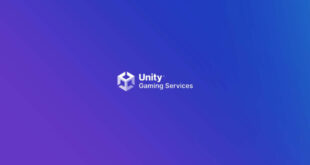As winter takes hold in the cosmopolitan city of Montréal, a crowd of fashionable game developers are gathering on a picturesque cobbled backstreet.
The doors are about to open on Unite; the annual conference run by the creators of Unity for its users.
An hour later, and the attendees are in silence, as Unity’s amiable CEO David Helgason and his entourage deliver their one-two punch at the Unite keynote.
First out the bag is the announcement and immediate launch of Unity Asset Store, which has been conceived to allow users to buy and sell content, code and other digital matter through a panel inside the engine’s front end.
And then, without a second wasted, Union has been confirmed. Initially something of a mysterious entity, Union is in fact a business model to allow Unity users to join forces and reach new platforms, such as the set top boxes and web enabled TVs that many are eyeing as the next potential boom area for the kinds of games that have enjoyed such success so far in browser and on the iPhone and iOS.
SETTING UP SHOP
But what exactly is the Asset Store, and what does Union really mean? Both are extensions of Unity’s continued democratisation of game development, and both came from the tech outfit’s desire to empower its community and flesh out the infrastructure supporting the popular SDK.
“This comes from a problem we see with content,” says Helgason of the Asset Store. “You can make technology as simple as you can – and we’re not done with making Unity simpler and easier to use – but even then most people can’t make games, because you need all these skill sets. We always knew about those problems, and the invention of Unity Asset Store came as something of a lightning strike into the head of our co-founder Nicholas Francis.”
Of course, the Torque engine offered an asset marketplace through its official website, but Unity’s spin on the store as available ‘in-engine’ makes it unique.
The Unity Asset Store is much like the consumer end of the App Store, although it offers an open model that should make it far easier to sell content. Among the 70 items on sale in the first day were art packs, tutorials and Unity upgrades as ambitious as a new graphics assets shader. Sales of those items hit $5,000 in the initial 24 hours of the store going live, suggesting there’s plenty of potential to make money providing content for the store.
But isn’t Unity taking a risk, opening the doors of accessibility wider still, giving the users the keys to the castle and allowing them to build a business and extend the engine’s remit?
“With any innovative technology today you want to give absolutely as much possible power as you can to the users, without breaking your own model,” insists Helgason.
“In Unity we realised that with a few more additions and extensions to the editor, anybody could create new parts to the editor on the same APIs we used to make it. We thought ‘do we lose anything from that?’, and the obvious answer is ‘absolutely not’.”
CUSTOMER SATISFACTION
Admirable stuff, but what of the reaction from Unity’s users? To describe Alex Schwartz, co-founder of start-up Owlchemy Labs, as a typical Unity user would be rather unfair, but he certainly epitomises the kind of developer Unity is famous for courting. He has turned his back on triple-A to set up a grass roots indie, and is a passionate contributor to the Unity community via in his role heading up the Boston Unity Group.
But his reaction to the Asset Store is typical of the mood at Unite: “My immediate reaction to the Asset Store was to call my business partner right away and get him to get the editor scripts he had written up there. Just to get stuff on there to sell. Seeing the monetisation aspect of what the Asset Store can do was instant.
“It’s perfect for small studios right now. Because of our small size we want to be in there right now, at the bleeding edge moment. We can do that too, because we don’t have to go through a chain of command like I was used to at a 100-person company. We can just do this right now.”
Others, though, are quick to warn that something like the Asset Store could potentially lead to a homogenisation of game design.
“Asset store is going to prove to be very powerful, but honestly, I like games to be more original, and have content created by their own teams,” says Martin Repetto, developer at Atmosphir creator Minor Studios.
"But I do understand that there are very small teams of around two or three people that don’t even have an artist. Those guys will do great.”
But Repetto is quick to point towards the potential of the Asset Store as a tool for the rapid prototyping of game ideas, and even more optimistic about the potential saving with regard to buying and using Unity upgrades and new features available through the marketplace.
“For Atmosphir we’ve actually had to develop a lot of tools for Unity; one to integrate animations and tools to allow character customisation on the fly. We’ve had to build these ourselves. If this had been available sooner maybe we could have bought some stuff,” say the developer, who ends with a prediction: “It’s not going to be assets that dominate the new store, but code that allows you to expand your editor.”
The Asset Store has also piqued the continuing interest of several of the numerous service companies that have managed to secure work with the expansive Unity customer base. Character animation specialist Mixamo, which has been working closely with Unity for some time now, is quick to highlight its vision for what it can do through the store.
“I think that the asset store is a big revolution, because it is opening up the door for content to be applied regularly in the game development environment in Unity,” says Mixamo’s CTO and co-founder Stefano Corazza.
“For Mixamo in particular it will be very interesting. Usually users have to upload a big file before we apply the motion and retarget it automatically after they have customised it, and then it can be downloaded into the game engine. They have to buy before they see how a motion will look in a game.”
Things are set to change though. Mixamo is currently working on a system that will instead let its users select a character, before going to the Asset Store and access a special ‘widget’ so it can stream the motion data directly into the game environment.
“That point will be the first time in history where you can test an animation in your game development environment even before you buy it. That will be gigantic,” concludes Corazza.
UNITED WE STAND
While the reaction to Unity Asset Store was generally optimistic and enthusiastic, Union initially caused a little more confusion at Unite. Across the industry the worlds of distribution are in a state of flux, and the new platforms jostling for attention on the horizon are many. But, says Helgason, it was the unsettled future that inspired the creation of the collaboration scheme.
“Smart people that have been in the industry a long time and understand the value of content kept telling us ‘go into publishing’,” admits the CEO, adding: “but for us that felt weird and wrong. That was because all the publishing models we knew were somewhere between annoying and overly complex.”
But Helgason and his colleagues also saw many new opportunities arising, and realised that the method of selling Unity licences to developers via the established model wouldn’t be able to capture those prospects.
Considering that it is becoming increasingly hard to identify how many platforms are likely to emerge, and how many will thrive, a new approach was needed, and that approach is Union.
“Suddenly we saw a model,” says Helgason. “A model which is explicitly not publishing, but some other animal; some kind of aggregation of things. We saw space for a Unity-style model; a primarily technical approach that doesn’t try to be complex or get in the way of others, and enables something that wasn’t possible before.”
The final realisation came when the Unity team began looking at their developer customers as a whole. As one entity the 260,000 Unity users – 80,000 of whom had used the engine in the past month at the time of Unite – have made perhaps as many hit games than any of the big mobile publishers. So why couldn’t they act as one entity, wondered Helgason. Unity’s VP of strategy Brett Seyler now heads up the Union operation as general manager.
DISTRIBUTING KNOWLEDGE
“Union is a distribution service that helps developers get their game to platforms and markets,” explains Seyler.
“We, for the last year, have been approached by lots and lots of buyers from people and companies who make consumer devices or that have relationships with those consumers that they have, and they want games to put on the platforms that they have; either new platforms or channels that haven’t really had games on them up to now, like web TVs.”
Of course, Unity wouldn’t be able to open a door for developers to reach any new platforms by simply porting the entirety of the Unity SDK and adding a new build target in the menu.
“Some of this stuff is just so new or so unproven or even just unknown that it’s really hard for us to go and tell developers to take a risk and buy a version Unity after the release of a new device because there’s a chance of success there,” confirms Seyler.
“We really don’t have sufficient confidence in every existing platform there is to be always extending our model in that way. So we have a new way that is both significantly less risky for us and less risky for developers as well.”
By porting just enough of the Unity SDK to a new platform to enable the flawless running of something in the region of 200 games, Unity will then be able to offer that platform’s owners a bespoke package of games. By handling all of the porting of its games in-house, Unity will be in effect delivering its customers’ titles to new platforms without them having to do anything, in return for an 80/20 per cent revenue spilt in the favour of the developer.
Opting in will also be free for the developers interested in Union, and Unity will evaluate all of the submitted games before pitching the specially crafted portfolios out to a number of publishers across platforms, and even digital portal owners.
INDIE THINKING
“What is really interesting about it is that Union is looking at things like set-top boxes and the move to different kinds of platforms in the future,” says Minor Studio’s creative director Dave Werner.
“One of the biggest appeals of going to Unity for us was the ability to move to different platforms if we wanted to without having to start from scratch each time. I’m very excited about web TV and set-top boxes becoming more popular in the next five years, an it’s great that Unity seems to have the foresight to look at that and have something in place.
“Anything that helps a developer to reach the market, I’m all for it,” adds Repetto.
“That’s how it is. If Union can help me get on every platform that might be, from an aeroplane to a car, I’m going to want to be there. That’s just a no brainer.”
There is, however, a murmer of caution from smaller developers enamoured by the freedom of running an independent studio, such as Owlchemy Labs’ Schwartz:
“I hope they don’t do things incorrectly in how they implement Union, so somebody we don’t know pitches our game to somebody else we don’t know. For us being indie is about taking on responsibility for ourselves, and maybe Union could take that away from us and give it to other people. “
But Seyler is confident that Union’s structure will not in any way be undermining the independence of the kinds of studios that have gathered around Unity in recent years:
“If a developer is concerned about ‘giving their game to us’ and feeling like its not theirs’ any more, I’d say ‘it is still yours’. You don’t have to be in the program if you don’t want to, and you don’t have to stay in the program.”
Seyler is also exceedingly confident that Union can and will become a money-making enterprise for its participants.
And as Unite’s busy schedule draws to a close, and the developer throng make their way to the exits, the prevailing mood matching Seyler’s optimism. It’s clear that Unity’s customer base have faith in the company on which many have built their careers, and with a collective effort it seems that Union and the Unity Asset Store have every chance of becoming the kind of success stories the engine firm is famous for.

 MCV/DEVELOP News, events, research and jobs from the games industry
MCV/DEVELOP News, events, research and jobs from the games industry



